Best budget MTB wheels – performance boosting bargain upgrades
These bargain MTB wheelsets will make your bike faster and more responsive – whatever your style of riding

The best budget MTB wheels are a serious upgrade for any standard bike. Okay, the absolute best mountain bike wheels generally cost serious money, but that doesn't mean you can't get most of their performance for a fraction of their price.
Lighter wheels accelerate more easily, stiffer wheels track more accurately through corners and ugly rock gardens, and stronger wheels keep on spinning when others fail. With so many options out there, there's something to suit every kind of rider.
Wheel upgrades are simply one of the best aftermarket purchases you can make – even just changing to the best rim width for your best mountain bike tires can make a huge difference to tire stability, cornering performance and ride quality.
Our reviewers have tested the best budget wheels for mountain biking to compile this list of those that offer maximum performance with minimum outlay. Our top pick are the awesome Hunt Race XC Wide wheels, and our best value choice are the Bontrager Line Comp 30 TLRs.
Scroll to the bottom to see the things to consider when buying your next set of wheels or keep scrolling for our expert choice of best budget MTB wheels.
Best budget MTB wheels
Why trust BikePerfect
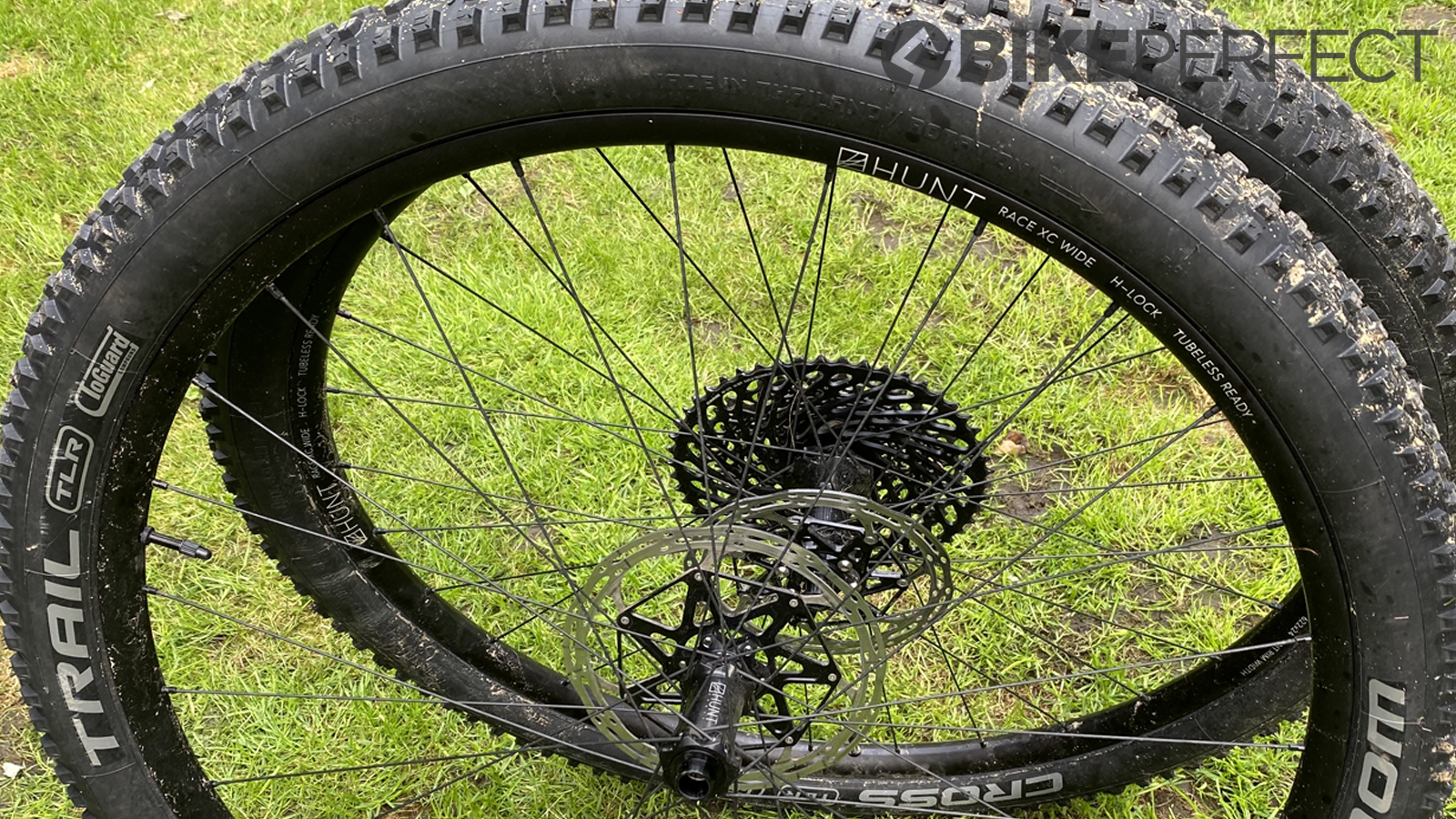
Specifications
Reasons to buy
and compliance
Reasons to avoid
It's hard to believe this level of feel and performance is available for so little cash. Fitting the Race XC Wides breathes life into any bike thanks to a top-dollar feel and agility-boosting acceleration and control.
At barely over 1,500g, these represent a massive weight saving (likely to be around 500g!) over most OE (original equipment) wheelsets, even on some pretty expensive bikes. And as it's rotating weight, it really makes a difference.
Whether you're an XC racer or just love hammering out the miles, the advantages are massive – so long as the result isn't flimsy, anyway. And the Hunts are anything but.
They're tautly built to a very high quality, and transfer power without any wind-up loss. They're not crazy stiff though – some compliance has been engineered into the rim, so they always remain comfortable and track aggressive off-camber lines with ease.
They can feel a bit flexy if you're really pushing it, but their forgiving feel makes them a great choice less aggressive riding – and especially for hardtails.
Freehub engagement is near-instant, encouraging you to get on the pedals earlier and climb harder than ever. We punished these wheels far beyond their XC claims for months of testing, and needed only a single slight spoke tension adjustment as a result – we’re convinced they’re built to last.
Read our Hunt Race XC Wide wheelset review for more detail.
If trail mountain biking is seriously your focus, though, we also have great things to say about the Hunt Trail Wide V2 wheelset.
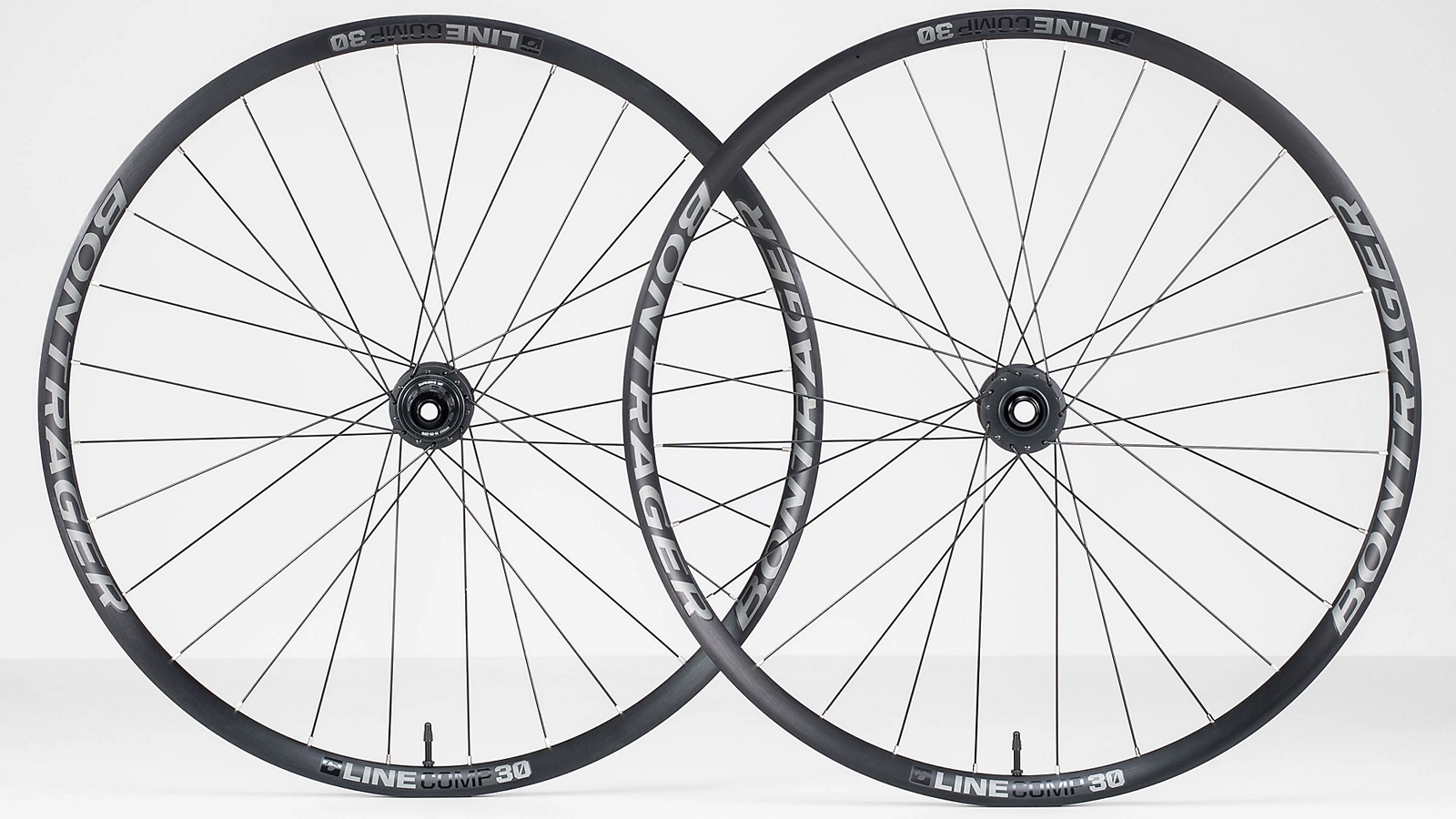
Bontrager Line Comp 30 TLR wheelset
Specifications
Reasons to buy
Reasons to avoid
The Bontrager Line Comp 30 is by far the cheapest option here, but the low price doesn’t mean sub-par performance. Just over a couple of hundred bucks can massively improve your bike's trail performance.
The 29mm internal rim width boosts cornering traction and overall feel, and allows low pressures for even more control over most much skinnier entry-level wheels.
The freehub body has 54 points of engagement, again a huge difference – most entry-level wheelsets have far fewer and are pretty laggy as a result. In fact, the acceleration pickup is comparable to wheelsets that cost three times as much as the Comp 30s.
These are tubeless-ready, too, with rim tape and valves supplied. The only negative is the lack of a SRAM XD freehub body option, but if you're on a Shimano HG-style one anyway, these are a bargain.
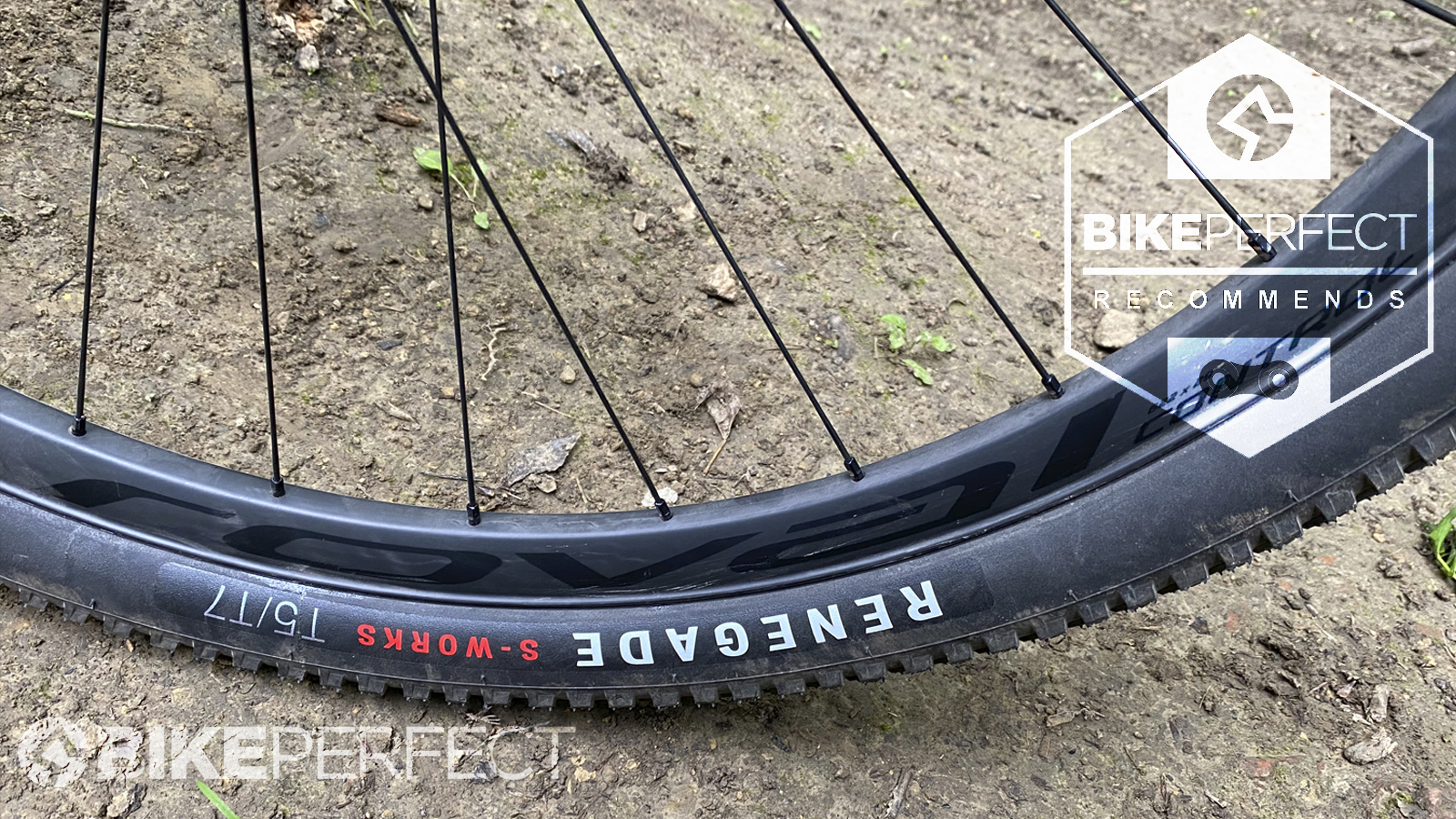
Specifications
Reasons to buy
Reasons to avoid
Roval's own Control SL wheels may be lighter, but the standard Control Carbon 29 wheelset we tested is hardly a heavyweight, and really hits the price-to-performance sweet spot. If you want carbon, these are an excellent place to start.
It took 16 prototypes to design the Control rims, apparently, and they weigh a claimed 358g per piece. They're laced with DT’s well-proven, double-butted Competition straight-pull spokes to DT Swiss hubs.
The broad rim and well-designed carbon fiber layup leads to a tough, high-performance wheelset, and if you do manage to damage them Specialized offers a generous lifetime warranty. With XCO courses getting more technical and XC bikes getting more capable of descending at speed, that's great news.
These wheels are the perfect match for an aggressive rider.
Read our detailed review for more insight into how the Roval Control 29 Carbon wheelset performed during our test.
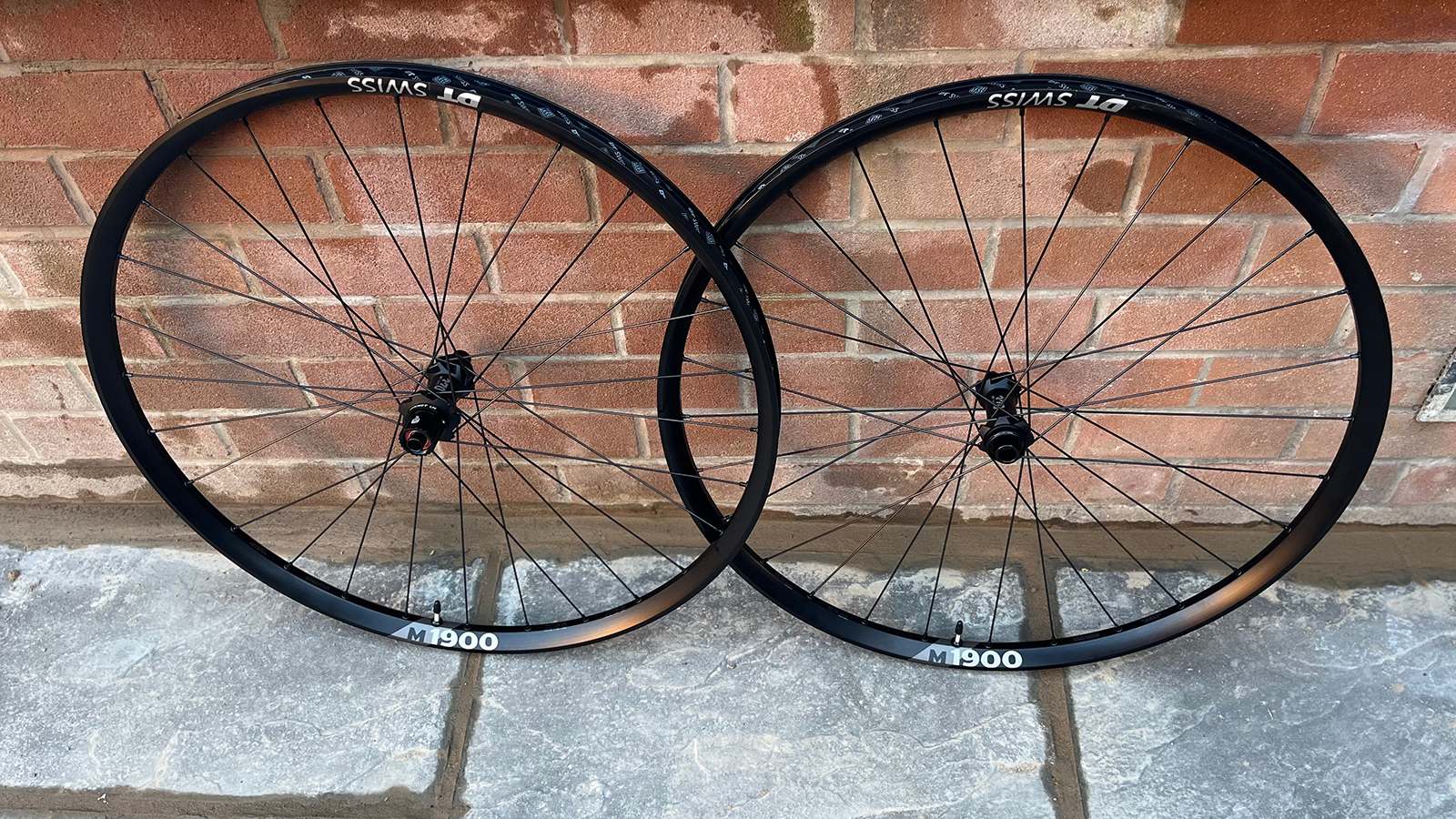
Specifications
Reasons to buy
Reasons to avoid
DT Swiss wheels (plus their hubs and spokes) have long been the benchmark for premium quality durability. The latest 1900 range aims to continue the legacy of previous versions of being some of the most reliable wallet-friendly wheelsets on the market.
For the 1900 Spline range, DT has specced their 370 hub, which now has the Ratchet LN system, which uses two spinning pieces, one driven by the hub shell and one by the freehub.
The 1900 wheel range uses two different rims; the M we tested comes with the 502 rims with a 30mm inner width, and the E and XC 1900 wheels use the E 532 rim, the little brother of the EX 511 rim, although made out of a different grade of aluminum alloy.
The M1900 uses DT’s lower-cost sleeved aluminum rims, which use a sleeved section to bond the two parts of the rim together, as opposed to its high-end wheels, which are welded. They have held up perfectly during our test, with zero damage or dings on the local rocky peak district trails without using a tire insert.
We found they offered a real Goldilocks feel of not too stiff, not too soft, not too heavy, but not too light or skittish either. On rocky trails, they are reassuringly solid, yet on rooty wet trails where more feedback is a benefit, they offer just the right amount of feel to let you get on with riding.
To sum up, the DT Swiss 1900s are a very good solid wheelset, perfect for high mileage riders who appreciate dependable, reliable hoops that can be serviced and kept running for years. For more info, see our full DT Swiss 1900 review.
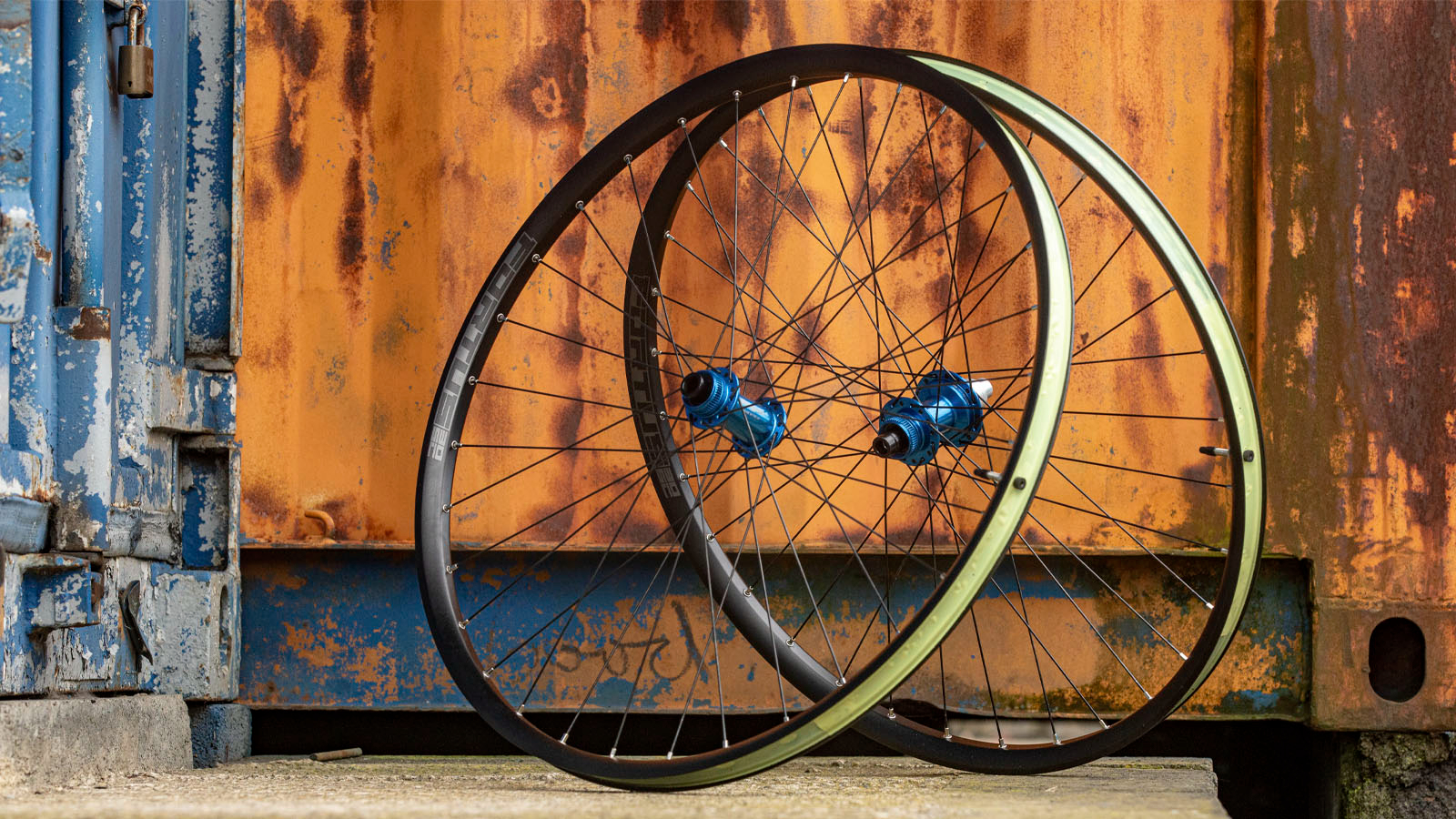
Specifications
Reasons to buy
Reasons to avoid
The Hope Fortus 30 SC Pro 5 uses Hope’s faster engaging and faster spinning hub and lighter single-cavity 30mm inside rims, balancing speed and strength.
The Pro 5 hubs have more than twice as many points of engagement than previous versions and a new offset 6-pawl freehub design in a 54t ratchet. There’s also improved sealing, which sees a new flexy labyrinth seal behind the freehub body that really snaps into place and a reduced axle diameter to accommodate larger, stronger bearings.
The Fortus SC version has a slimmer profile, omits some reinforcing bridges inside and is a lot lighter than the regular 30mm Fortus internal rim. The centerlock SC wheels we tested are 29in, use 32 Sapim race j-bend spokes with silver brass nipples and weigh 2,070g a pair. We found spoke tension was good and didn’t loosen during testing.
We were impressed with the SCs’ performance. Stiff and direct whether stomping on cranks or chucking the bike in and out of big berms, our tires remained stable with zero burps or loss of air once seated, and they offer a comfortable and smooth ride quality that isn’t too jarring or staccato if the ground is baked rock hard or you’re smashing over repeated rocks or root webs. They feel worlds apart from the old Pro 4 Fortus 30s that always felt a bit of a dead lump and too slow climbing and getting going.
Check out our full Hope Fortus 30 SC Pro 5 review.
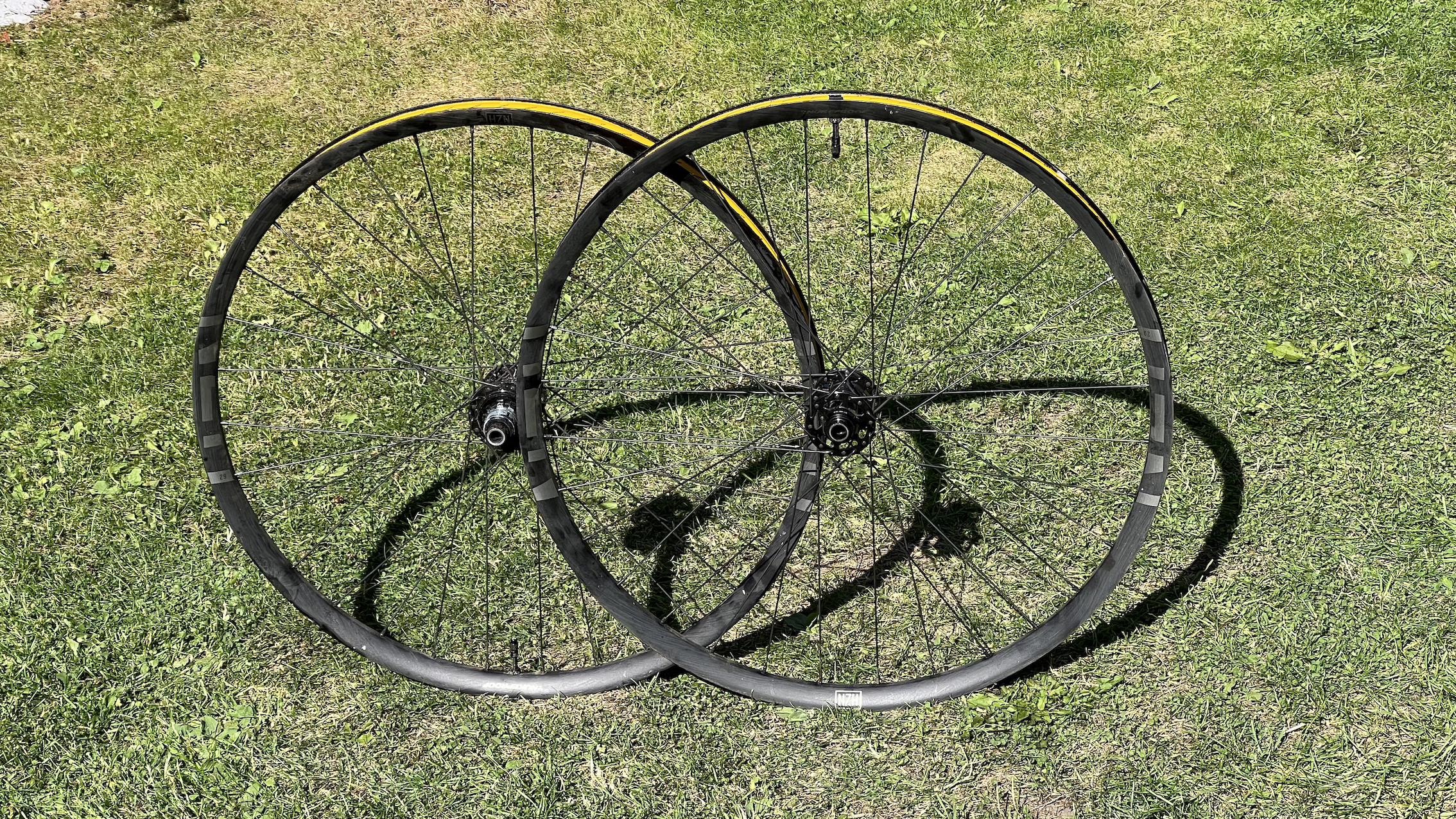
Specifications
Reasons to buy
Reasons to avoid
Nukeproof’s Horizon V2 strikes a great balance between cost and performance. The wheelset is tightly laced with 32 J-bend spokes in a three-cross pattern front and back. The front and rear wheels have the same 30mm inner rim diameter and low 21.6mm rim profile, but the front has a slightly slimmer side wall.
Nukeproof uses Enduro ABEC 5 bearings and their LLB/LLU seals make light contact with a channel which forms a network to aid in containing contaminants from entering the bearing. Enduro bearings come with a much larger volume of grease to ensure complete surface coverage of the ball bearings to avoid metal-on-metal contact and excessive wear.
While this is by no means the lightest enduro wheelset the lighter front still means it pops and lifts OK when needed. The longer, slacker spoke arrangement, differential rim wall thicknesses and alloy blend provide really controlled ride characteristics too.
While they’re definitely sturdy rather than having a super lively in trail feel, the near-instant 3.5 degree freehub engagement makes them very responsive through the pedals. This proved to be priceless in our tests when we needed a quick nudge to hop up and over any slow and awkward trail segments.
The Horizon V2s have proven to be a really durable and solid all-rounder for more aggressive riding, so are a great choice if you’re planning on riding rougher enduro or downhill tracks with the occasional park day.
For more, see our full Nukeproof Horizon V2 review.
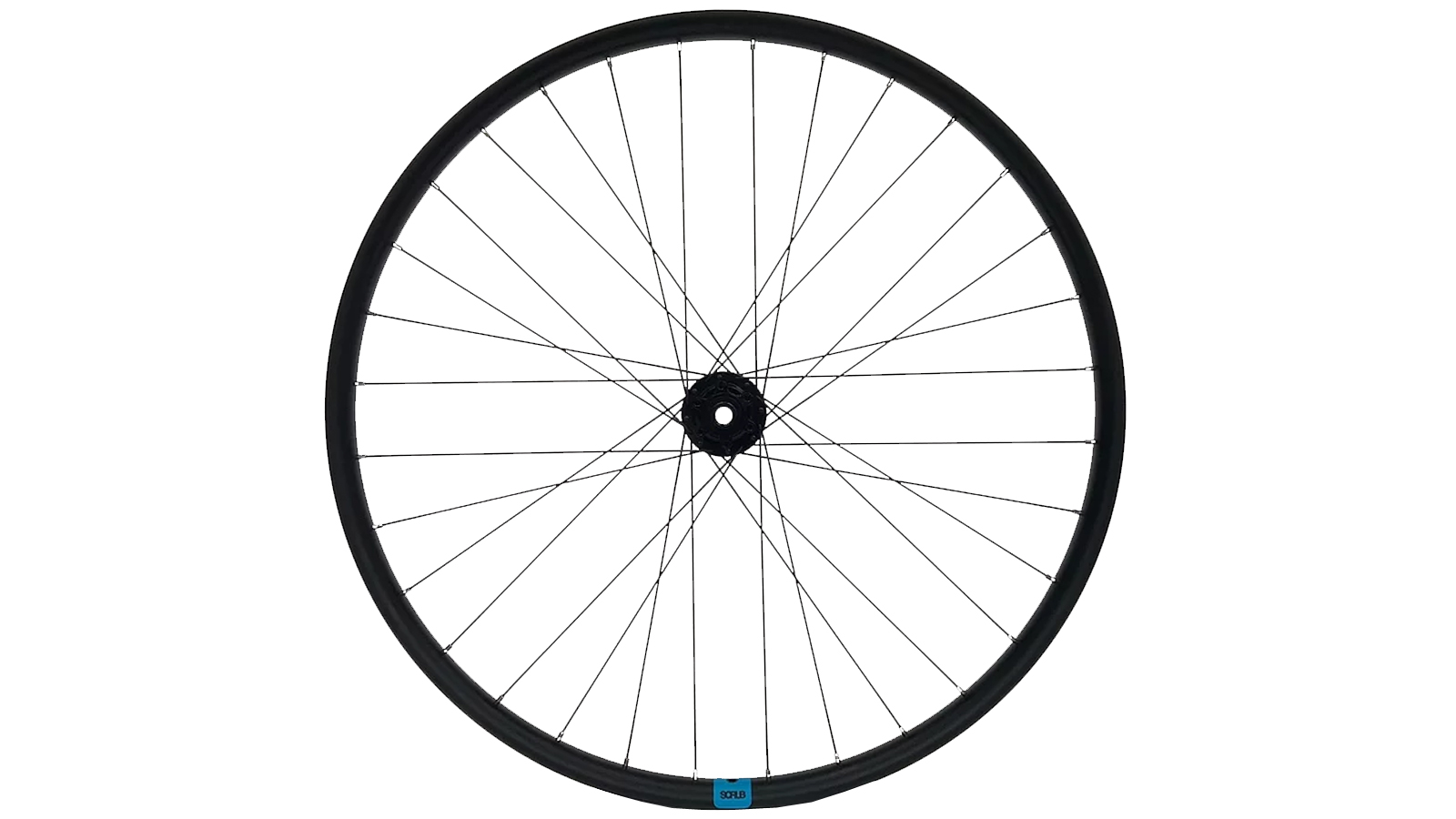
Scrub Alloy Trail wheelset
Specifications
Reasons to buy
Reasons to avoid
There’s something special about a fully hand-built wheel, and from the first few pedal strokes the high-quality components and attention to detail seriously impress. These are some of the best feeling hand-built wheels we’ve ever experienced; it’s amazing this level of quality can be felt at such a killer price point.
On the trail, the Scrubs feel continuously smooth, change direction instantly and spin with ease.
The 30mm internal diameter rims give a great profile to 2.4-2.5in rubber, and has yet to show any weakness even after several rim dinks that had us wincing. Built around own-brand hubs with sealed cartridge bearings and a six-pawl freehub, these wheels also have a swift, enthusiastic engagement.
The Alloy 30s come pre-taped with valves already installed, and are backed with a two-year manufacturer’s warranty and five-year crash replacement support. If you’re not put off by the unknown name, this is a stellar option at a highly competitive price that will suit nearly all modern trail riders.
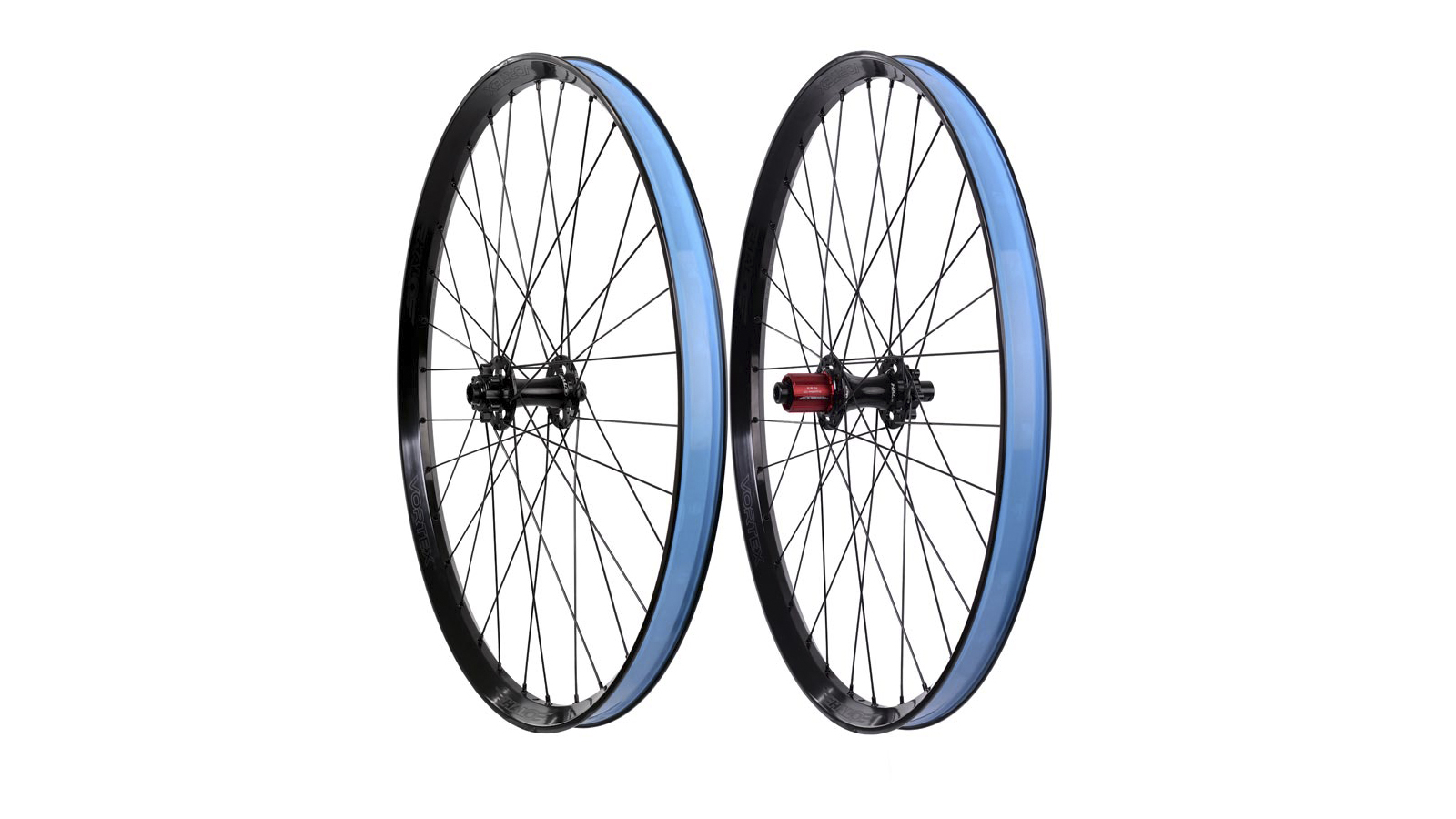
Halo Vortex wheelset
Specifications
Reasons to buy
Reasons to avoid
Humming like a swarm of angry bees, Halo’s MT Supadrive rear hub has 120 points of engagement; the pickup and acceleration is instant. If your rear hub's voice is important to you, then you’ll love the Vortex wheelset.
On the other hand, it's worth noting that while such instant reactions are great for powering out of berms or mid-enduro race sprints, if your suspension creates a lot of pedal kickback it will only become more noticeable.
Surrounding the hub is Halo’s heat-treated 33mm (internal) alloy rim. This proves super tough and resilient, which isn’t that surprising considering Halo’s dirt jumping heritage.
The spoke tensions are equal on either side and the rim is asymmetrical, and to compensate for the different leverages the wall thickness on the short/long sides differ as well – consequently, impact forces meet a balanced resistance.
At over 2kg the Vortex wheels aren't light, but they're not excessively heavy either – if you’re a hard-hitting rider these are fit-and-forget.
They’re available in Boost and non-Boost hub widths, and the axles can be altered to work with any axle diameter too – even quick release. If you want a wheelset that sounds ace and will last you a full season of aggressive racing, this is a solid option.

Stans Crest S1 wheelset
Specifications
Reasons to buy
Reasons to avoid
The Crest S1 is the latest in a long line of Stans XC wheels designed to be light enough to race but tough enough to rally. A 23mm internal width rim means XC tires from 2.1in to 2.3-in blow up to a well-rounded and traction-enhancing shape with no pinching, and the tough yet light build isn’t going to let you down when taking a poor line decision on race day.
Stans NoTubes is the originator of tubeless and, as you might expect, the rim shape of the Crest S1 makes them an absolute breeze to set up. Tires tend to seal and seat within the first few strokes of the track pump, and as with all Stans wheels, they come pre-taped. You just need to add valves and sealant.
Finishing off the speedy XC theme are Stans’ quick-engaging and fast-rolling Neo hubs, which can be made to fit a vast range of axle standards for excellent versatility.
How to choose the best budget MTB wheelset
Alloy or carbon?
While most brands' more expensive wheels feature a carbon rim it doesn’t mean you can’t get top-performing characteristics from aluminum. The weight difference often won’t be as much as you think either. In fact, good alloy wheels can actually outperform overly stiff or dead feeling carbon hoops and in the event of a failure replacing an alloy rim is a whole lot cheaper, too.
How light should wheels be?
Lightweight wheels – which are typically aimed at cross country and fast trail use – accelerate fast, stop quickly and due to their low overall weight climb efficiently. The flip side of these traits is the low overall weight and slimmer build tend to compromise strength when hammering down techy descents and they’re usually flexier when pushed hard compared to stouter trail/enduro options.
Trail/enduro wheelsets are best suited to bikes most people are riding around on today, so they need to be able to perform well across a broad range of terrain. This means they need to be light enough to climb okay but tough enough to tackle testing descents.
Striking the balance is hard and going either way on the spectrum can massively alter the on-trail performance – too heavy and your bike will feel sluggish and cumbersome, yet too light could make your bike feel twangy and vague.
What's the deal with hub spacing?
Hub spacing is another factor you need to take into consideration when selecting a new wheelset. Most new bikes operate with Boost or even Super-Boost spacing, however, if your bike is a few years old there’s a possibility it could still be using narrower non-boost axle widths. These specs can be found in the bike’s specification list but if you’re unsure a local bike shop should be able to advise the correct dimensions. The frame spacing specs are as follows:
Non-Boost – 100mm front + 142mm rear
Boost – 110mm front + 148mm rear
Super-Boost- 110mm front + 157mm rear
Axle diameter is something that seems to have settled with 15mm at the front and 12mm at the rear, but it’s still something worth checking. Some bikes, especially entry-level hardtails may still use a traditional 9mm quick release system spaced at either 135mm or 141mm whereas downhill bikes are still using a 20mm bolt through in the fork.
What's the ideal inner rim width?
To both keep the weight low and mesh best with skinnier cross country/trail tires, lighter-weight wheels generally see a narrower rim profile, too, typically around 19-25mm, so if you plan on running wider rubber these lightweight weight options probably are not what you require. If you and/or your bike require wider, more aggressive tires then a rim width of 26-35mm provides a predictable tire shape through the ranges of 2.4- to 2.6-inch modern rubber.
How many spokes is best?
32 or more spokes make for a stronger and stiffer wheel, whereas fewer spokes (28 or less) create a more forgiving and compliant ride. A wheel with more spokes will feel more direct and responsive under power but may cause premature rider fatigue and erratic ground tracing characteristics by being overly stiff. Plain gauge spokes are heavier and more dead feeling than butted (thicker at the ends, thinner in the middle) spokes and they’re often not as strong either, so go with a butted spoke wheel if possible.
The spoke nipples, which the spokes themselves thread into, are usually made from brass or alloy. We prefer brass nipples as they don’t corrode or seize when ridden in prolonged wet conditions.
What do I need to know about freehubs?
The freehub is the section of the rear hub that the cassette fits onto. Inside the freehub body is the mechanism that engages when you stamp on the cranks. The speed that the freehub engages in is measured in degrees or points of engagement. More points of engagement will result in less cassette movement before it engages and starts driving you forward.
There are pros and cons for both laggy and super-responsive engagements. If the freehub engages quicker, it allows for the power to be delivered earlier, meaning you can get up to speed faster. The flip side of this is that, depending on your bike, a freehub with lots of engagement can increase pedal kickback. It’s also worth noting that due to the quicker engaging freehubs containing smaller parts with tighter tolerances, they can require more maintenance, especially on cheaper wheels and reduce the overall longevity.
Different drivetrain brands and models require a different freehub body fitting system to attach the cassette. Entry-level Shimano and SRAM systems use Shimano’s HG system, everything GX upwards from SRAM utilizes its XD driver system and Shimano's all-new 12 speed systems have made the switch to a new Micro Spline pattern. Just like before, if you’re unsure it’s worth looking at your bike's spec sheet or checking in with your local bike shop.
How we test the best budget MTB wheels
All the wheels tested here are ridden over several months and many, many miles in grueling conditions on all kinds of MTB trails. We test them in bone dry conditions as as well as filthy and wet to see how the wheel internals stand up over time and if the bearings and seals can take a beating.
Meet the testers
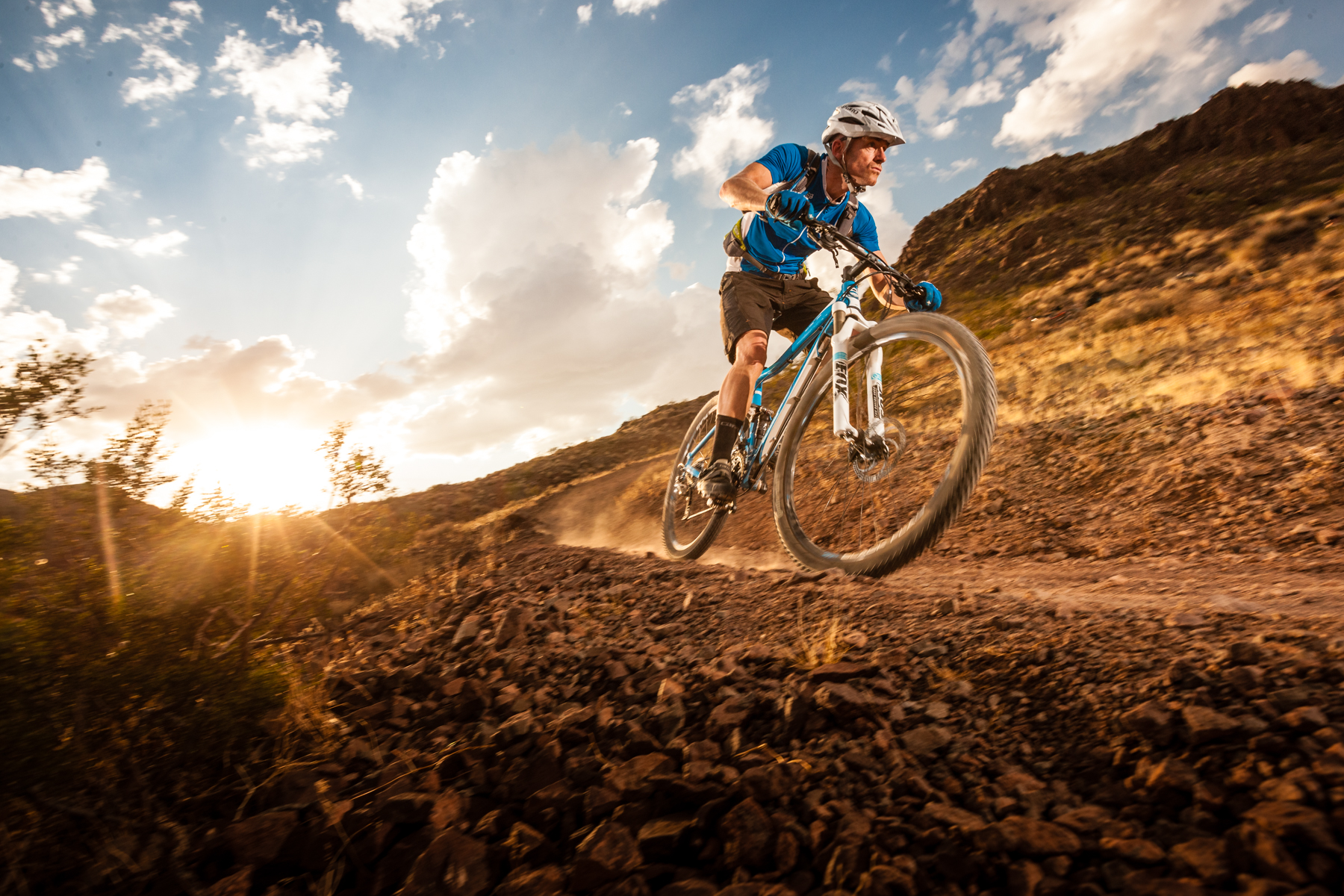
Guy Kesteven is Bike Perfect’s tech editor. He spent a few years working in bike shops before starting writing and testing for bike mags in 1996. Since then he’s written several million words about several thousand test bikes and a ridiculous amount of bike components and riding gear.

An ex-elite downhill racer, Mick's been mucking about and racing mountain bikes for over 20 years. He's tested all manner of wheels so knows exactly what works and what doesn't.
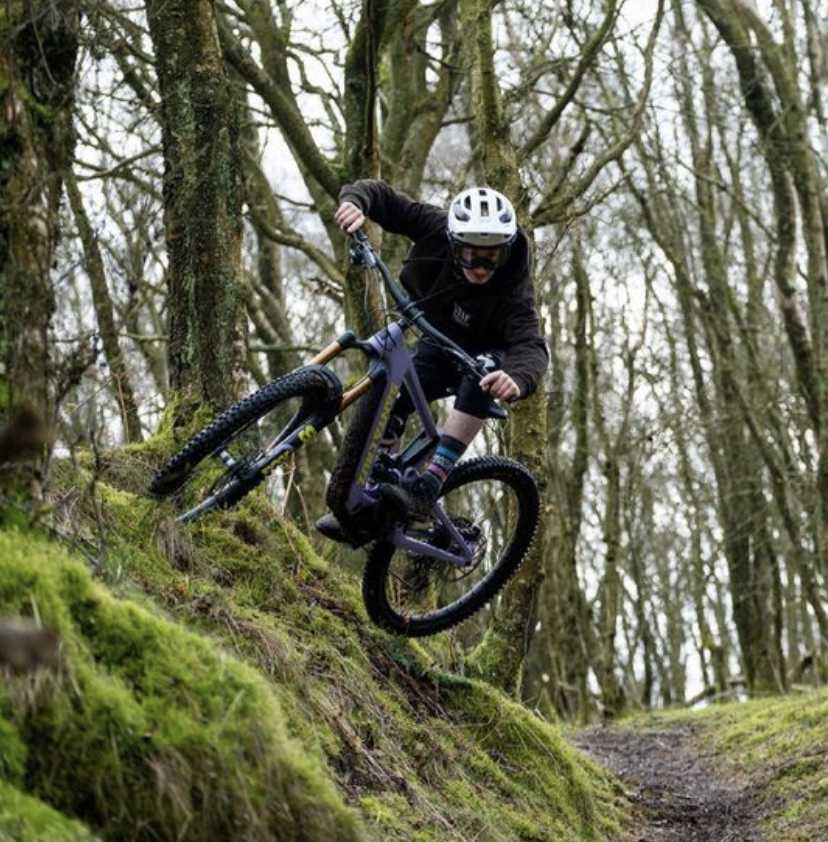
Jim Bland is a product tester and World Cup downhill mechanic based in North Yorkshire, England, but working Worldwide. Jim’s chosen riding genre is hard to pinpoint and regularly varies from e-bike-assisted shuttle runs one day to cutting downcountry laps the next. Always on the hunt for the perfect setup, Jim will always be found comprehensively testing kit with World Cup racing levels of detail. His ultimate day out includes an alpine loam trail, blazing sunshine, and some fresh kit to test.
Rides: Santa Cruz Hightower, Santa Cruz v10, Specialized Kenevo.
Height: 170cm
Weight: 64kg
- Steve WilliamsFreelance writer
- Guy KestevenTechnical-Editor-at-Large
- Neal HuntFreelance Writer
- Mick KirkmanFreelance writer
